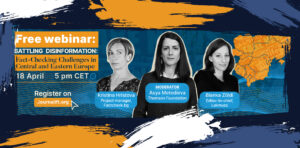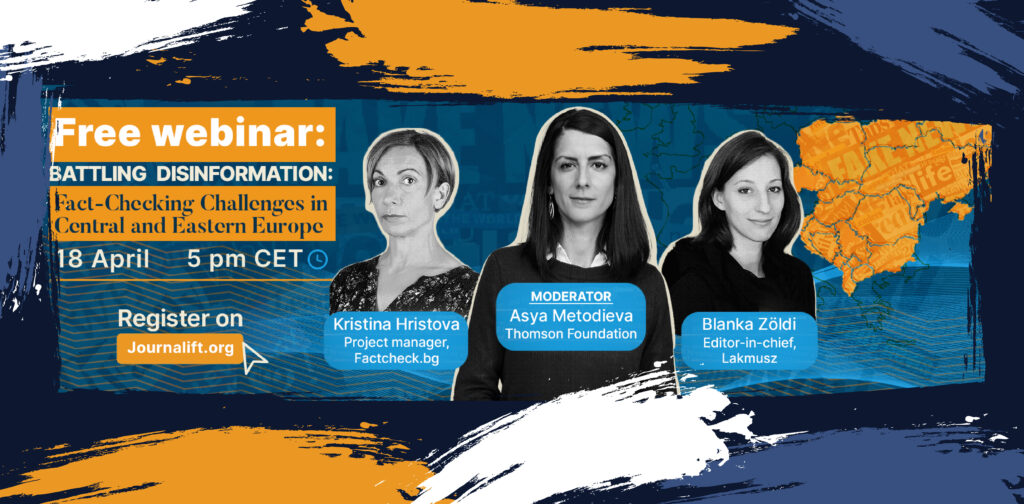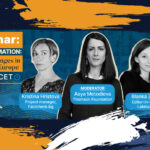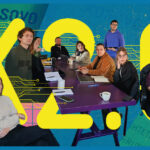The 2023 EU Award for Investigative Journalism has proven to be an exceptional showcase of talent, diversity, and shifting journalistic priorities. With 267 stories submitted by 203 authors and author teams from 35 different media outlets, the evaluation juries from seven countries and one regional panel faced a challenging task in selecting the winners.
What stands out in this year's edition is a significant shift in the types of stories that have garnered the most recognition across the Western Balkans and Türkiye.
Traditionally, investigative journalism in this region often revolved around high-profile criminal cases and political misconduct. However, in this edition, a change is evident as more stories delve into the realms of health, environment, and discrimination – issues that have a direct impact on the lives of ordinary people.
The analysis of the 70 best-rated investigative stories (with 10 from each participating country) underscores this evolving trend.
Breaking down the top-rated stories:
- 25% focus on the misuse of political power and political corruption
- 23% center on health and environmental themes
- 19% tackle high-level criminal activities
- 16% address discrimination in various domains, including education and politics
- other.

For instance, a remarkable award-winning piece from Kosovo, authored by Kreshnik Gashi from Kallxo, exposed a deep-seated corruption scandal involving local businessmen and prosecutors. This two-year-long investigation presented concrete evidence, statements, and documents, shedding light on the extent of corruption at high levels.
In Serbia, Vuk Cvijić, a respected journalist from the Serbian weekly NIN, received a third prize for stories that unveiled strong connections between criminal circles and high state officials, highlighting their cooperation at the expense of the citizens.
Meanwhile, in Turkey, Seyhan Avşar from Halktv.com uncovered a bribery negotiation between President Erdoğan's lawyer and a prosecutor during the Antalya investigation of Fettah Tamince, the former partner of the Fethullahist Zaman Newspaper. This revelation presented clear audio evidence that could potentially impact ongoing debates about Tamince's clearance through 'FETO Stock Exchange' negotiations.
A noteworthy example from Serbia is the first prize awarded to the investigative portal KRIK, which continued to shed light on a dangerous criminal group known as the Darko Šarić clan. This four-story series showcases top-quality teamwork, combining traditional investigative journalism methods with advanced technological innovations. The storytelling style is engaging, featuring compelling narrative elements. They revealed that the leader of the criminal group had planned to assassinate witnesses in the proceedings against him, had ordered the murder of associates, and was still involved in heroin smuggling from prison.
In Turkey, the first prize went to Murat Ağırel from Yeniçağ Gazetesi for his captivating story "Türkiye in the Grip of Drugs." He courageously unveiled a hidden web of crime stretching from Turkey to Europe, all concealed by influential figures within the country.
Medical Malpractice and Healthcare Reform
The spotlight also turned toward healthcare, with 13% of stories focusing on health. Notable stories include "Bad Blood" from North Macedonia, which provided an innovative documentary approach to addressing dangerous practices within a private hospital during the COVID-19 period. In Montenegro, Đurđa Radulović's "Silence Surrounding Violence" highlighted issues in maternity wards.
Jelena Zorić, the second prize winner from Serbia, boldly delved into clinical research and false diagnoses, igniting a fresh dialogue within the Serbian public sphere. Her investigation uncovered a shocking case of medical malpractice in the sensitive field of psychiatric health, shedding light on the web of corruption entangling medical and pharmaceutical companies.
Bosnia and Herzegovina's third prize winner, Arduana Pribinja of Al Jazeera Balkans, tackled the transformation of the healthcare system in the Canton of Sarajevo. Her story not only garnered widespread attention after being broadcast and shared but also spurred significant changes in the healthcare landscape.
Osman Mustafa, who secured the second prize in Albania, approached a persistent issue concerning terminal patients from a new angle, tracing the responsibilities associated with providing necessary drugs to children battling cancer. His investigative work offered a fresh perspective on a critical matter.
In Kosovo, Saranda Ramaj of Koha received the third prize for a series of articles that delved deep into the world of corruption and mismanagement within the healthcare sector. Her work not only heightened awareness but also triggered investigations and led to the removal of several authorities responsible for underlying scandals.
Environmental Concerns at the Forefront
The second prize at the regional level was bestowed upon Dragan Stanimirović from All Jazeera Balkans for his remarkable two-part exposé, "Battle for Neretva". This documentary shed light on the looming ecological perils faced by Neretva, Herzegovina, and Bosnia and Herzegovina as a whole. It provided invaluable insights into contentious issues such as institutional corruption, environmental mismanagement, and the age-old struggle between human interests and nature, driven by financial gain.
Montenegrin journalists from Boka News zeroed in on the problem of illegal landfills in the Boka Kotorska area, demonstrating a steadfast focus on environmental issues.
In Serbia, the investigative story by Vreme's journalists revolved around the controversy surrounding the arrival of the company Rio Tinto and its potential environmental impact.
Meanwhile, in Albania, the story "Shqipëria e mugët" explored the consequences of pollution on nature and people's lives, shedding light on the de-population of cities that were once industrial centers and the irreparable damage to landscapes.
Diverse Human-Centered Stories
Approximately 16% of the stories addressed various human-related topics, encompassing discrimination and education.
In Kosovo, Dafina Halili earned the second prize for her investigation, "Ghost Schools, Ghetto Schools, and Segregated Shifts". This powerful piece exposed the school segregation of Roma and Ashkali children in Kosovo, underscoring the existence of discriminatory practices in various schools, classrooms, and towns.
A Turkish journalist from Ozel Haber brought to light a story about religious education provided to young boys in a rather concealed setting in Ankara's Başpınar District. Many of these children are the offspring of militants whose fathers were involved with ISIS in Syria.
Local Issues with Global Impact
While the majority (63%) of the investigative stories addressed significant overarching topics, one-third focused on local issues that resonated strongly with communities and individuals in specific areas. For instance, Boka News shone a light on pollution concerns, Osman Stafa covered the challenges faced by cancer patients in Albania, and Arduana Pribinja's investigation had a significant impact on the healthcare system in the Canton of Sarajevo.
Innovative Storytelling Takes Center Stage
Some stories employed innovative approaches to presentation and storytelling, captivating audiences through various formats. For example, Zoran Jovanovski's investigation in North Macedonia was presented in an interactive and engaging video format. Džana Brkanić and Lamija Grebo from Detekor in Bosnia and Herzegovina (2nd prize in BIH) provided an excellent storytelling approach, particularly in explaining the context of hate speech. Ilir Gashi gained both regional and international attention with his original approach to exploring the topic of the alternative Balkan postal system.
In summary, the 2023 EU Award for Investigative Journalism showcased a diverse range of stories that tackled critical issues, from healthcare and the environment to human rights and local concerns. These stories, often presented innovatively, have had a significant impact on their respective regions and beyond, underscoring the power of investigative journalism to drive change and raise awareness.
These are just a few examples of the impressive investigative journalism that emerged in the 2023 EU Award for Investigative Journalism. The recognition of diverse topics and the use of innovative storytelling techniques have brought fresh perspectives to the forefront of the region's journalistic landscape, underscoring the profound impact investigative journalism can have on society. Additionally, a significant number of these stories are narrated from the viewpoint of ordinary citizens, highlighting their crucial role in these investigative narratives. In 10% of cases, various institutions serve as the protagonists of the stories.
This year's awards exemplify the power of investigative journalism to shed light on critical issues and drive positive change, and it's clear that these journalists are making an impact far beyond the newsroom.































